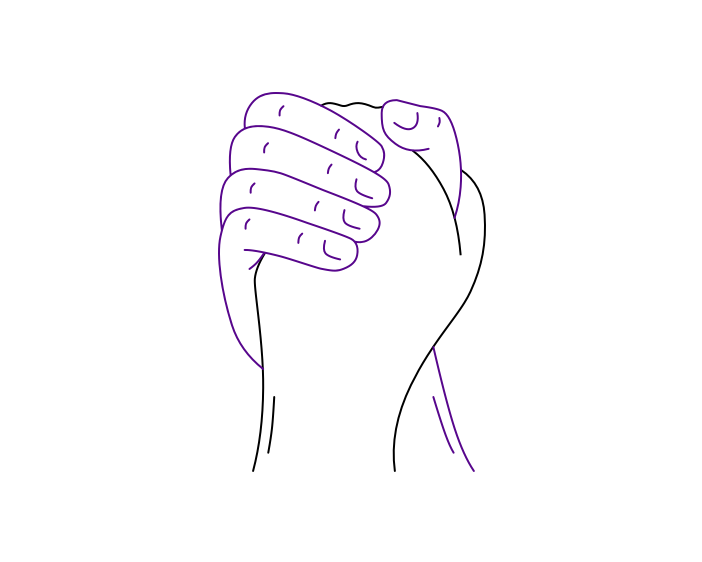Statement on recent events from NYU Meyers Dean Eileen Sullivan-Marx

June 02, 2020
Dear All,
It has been a week since a bystander posted the disturbing video of George Floyd saying “I can’t breathe” as a police officer kneeled on his neck for an excruciating 8 minutes and 46 seconds. That searing footage has shocked our nation’s conscience and set off unrest from coast-to-coast. But more than that, it has caused us to look at ourselves, our leaders, and our institutions of power and say, “We won’t stand for this anymore.”
At NYU Meyers, we stand in solidarity with George Floyd’s family and loved ones, peaceful protestors across the country, and all people of color, particularly the Black community, who are reeling from yet another senseless injustice. We believe Black lives matter. Your lives matter.
Right now, our collective attention is focused on confronting police brutality and the systemic racism that pervades our criminal justice system. And rightfully so.
According to a 2019 study from the University of Michigan, Rutgers University, and Washington University, police use of force is the sixth-leading cause of death for young Black men, just behind heart disease, cancer, and accidents. The study found that approximately 1 in 1,000 Black men and boys will be killed by police during their lives, while .39 white men and boys per 1,000 are. This means Black men are more than 2.5 times more likely to be killed by police than white men. The disparity is striking — and it is sickening.
But the real — and harder — truth for us to acknowledge is that it is not just a broken policing system that is the problem. It is a political system that suppresses voting rights. A housing system that implicitly promotes segregation. An economic system that routinely sees Black unemployment twice as high as white unemployment. A prison complex that sends five times the number of Black Americans to jail than whites. And a healthcare system that leaves people of color with uneven access to care, gaps in health insurance coverage, and poorer health outcomes.
As Michele Norris, a prominent Black writer and creator of NPR’s Race Card Project, wrote in The Washington Post recently, “[These outcomes] are the result of 100 million little individual actions and decisions that intersect and interlock to create the scaffolding for structural racism.” There is no one cause; and there is no one solution.
Taking the wide-angle view of a complex, deeply rooted societal ill is daunting. It requires us to grapple with expansive and painful issues that go back to the earliest days of this country’s history. And it demands that we take a long, hard look at our own belief systems: the public one that we display to neighbors, colleagues, family, friends, and classmates, the one that we display in secret, and the one that lives deeper inside of us that we may not even acknowledge exists.
But as nurses and members of the Meyers community, we can do it. We can do it because we have always done it by standing for the innate humanity of all our patients. We did it when we took care of Black freedom fighters who peacefully demonstrated in the streets only to be attacked by dogs and shot at with water cannons. We did it when we cared for and held dying AIDS patients when even some of their families would not treat them with the dignity they deserved. We did it when we treated Vietnam veterans who returned home with crippling anxiety and unwanted memories of trauma and were told there was nothing wrong.
So, how do we start to do our part? Let’s listen to our Black friends, colleagues, and patients. Trust them when they tell us that they are in pain, that they are not treated with equality and dignity in our offices or hospitals. Believe our colleagues when they say patients look past them for an attending doctor or nurse. Dispel the notion in our own families and friend circles that racism is a thing of the past. And support elected officials — particularly those at the local level — who will meaningfully reform institutions of power to help “bend the arc of the moral universe towards justice,” as Rev. Dr. Martin Luther King, Jr. said.
And say their names. Trayvon Martin. Tamir Rice. Sandra Bland. Breonna Taylor. Ahmaud Arbery. Christian Cooper. George Floyd. Say their names. Tell their stories. Ensure they matter. Because they do.
Let us commit to a more just society where not one Black or Brown person needs to fear being killed for doing things that some of us can do without a single hesitation or consequence. We are not free until we all are free.
In sorrow and in unity,
Dean Eileen
Eileen Sullivan-Marx, PhD, RN, FAAN
Dean, NYU Rory Meyers College of Nursing
Erline Perkins McGriff Professor